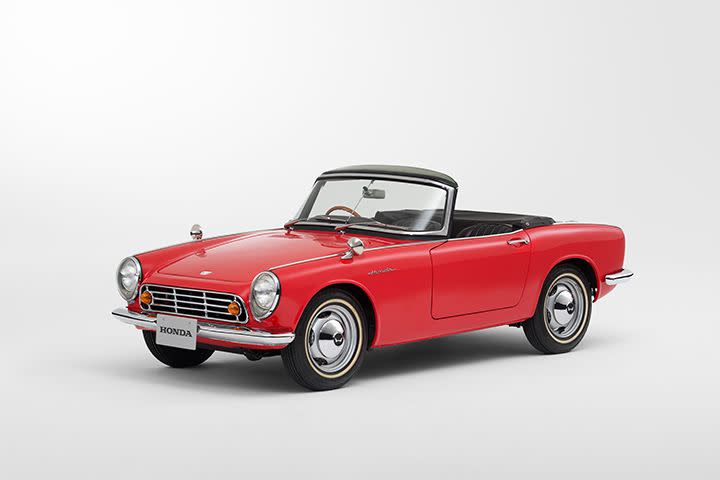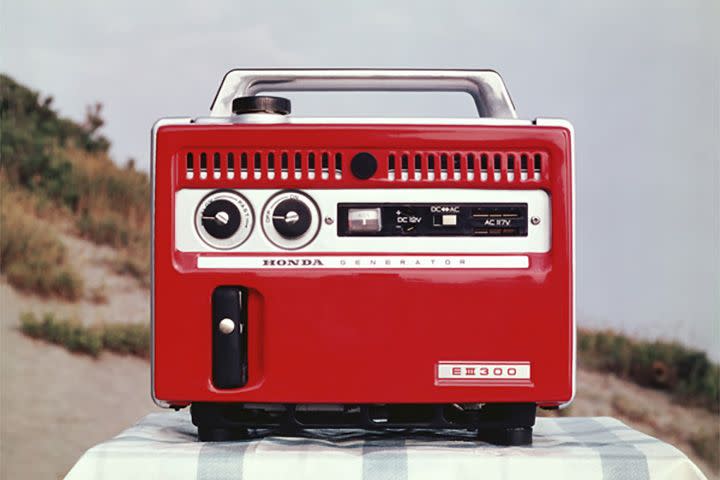How Honda Got Its Signature Red

Two colors are essential to any Honda fan: red and white. From the single-spot simplicity of the company's first F1 cars to the Ferrari-challenging crimson chosen for the debut of the mid-engined NSX in 1989, the red and white livery of Honda Racing is tied to the brand's identity. So it may come as surprise to hear that when Soichiro Honda chose a bright and cheery red for the company's prototype S360, there was a problem. Red cars were illegal in Japan.

According to Japanese traffic law in the early 1960s, red and white were reserved for emergency vehicles; while firetrucks and ambulances could get the peppermint paint colors, passenger cars could not. There were fears that painting a car red would confuse a population who were only just beginning to adopt the automobile. It would sow chaos and confusion in the streets. Dogs and cats lying down together!
At the time, the influence and control the Japanese government had over its nascent automobile industry was enormous. In the postwar rebuilding period, dozens of Japanese manufacturers of cars, trucks, and motorcycles had sprung into existence alongside Honda. Favoring national cohesion over internal competition, Japan's government pushed for larger companies to take over smaller ones. Nissan snapped up Prince and got the Skyline nameplate. Toyota swallowed Hino and got the Hilux. Honda was a scrappy little company, but the expectation was it'd fall in line.

Soichiro Honda was not a fall-in-line kinda guy. Honda's company began as a manufacturer of mopeds, using war surplus 50-cc radio generator engines, and in a decade had grown so fast that it was the world's largest motorcycle manufacturer, a title it has enjoyed ever since. Red was already associated with the brand due to its motors and machinery, and Honda wanted his first passenger car in the same cherry shade.
He took out an entire newspaper column in one of the major newspapers, the Asahi Shimbun, to complain about the restriction. Red is a basic color of design, he argued. How can they ban it by law?

At the same time, Honda dispatched its top executive to the Ministry of Transport to get permission for the color, perhaps with a little more diplomacy. The pressure worked, the government backed down, and Honda released the production S500 as Japan's very first red car.
The S500 is rarer than a Countach, but the later S600 and S800 sold well enough that you might see one at a Japanese classic-car show. The former was sold at Honda motorcycle dealers in Canada, and the latter at a handful of U.S. dealers. They are marvelous little cars to drive, in any color, basically four-wheeled motorcycles with chain drive and a 9500-rpm redline.

Japan's first red car gave rise to a whole breed of red and white Hondas. Motorcyclists have even nicknamed Honda "Big Red." Honda officially adopted Honda Red as its corporate color in 2001, and as part of the 75th anniversary celebrations released a special Honda Red colored pencil as a novelty item.

If you drive a red Honda, take pride in it. Soichiro Honda fought hard for your right to that primary shade. In a way, red is his personal signature.
You Might Also Like

 Yahoo News
Yahoo News 
